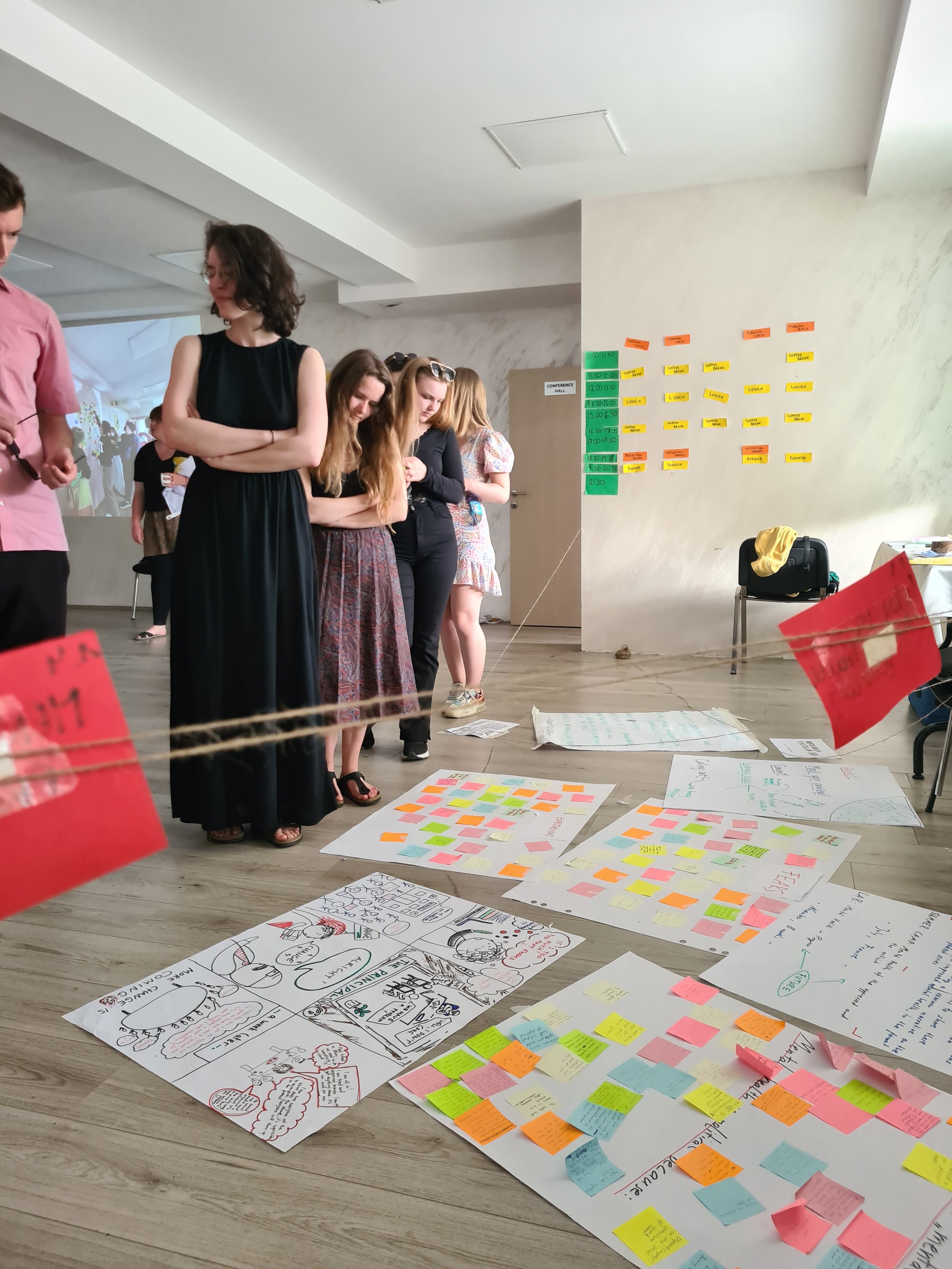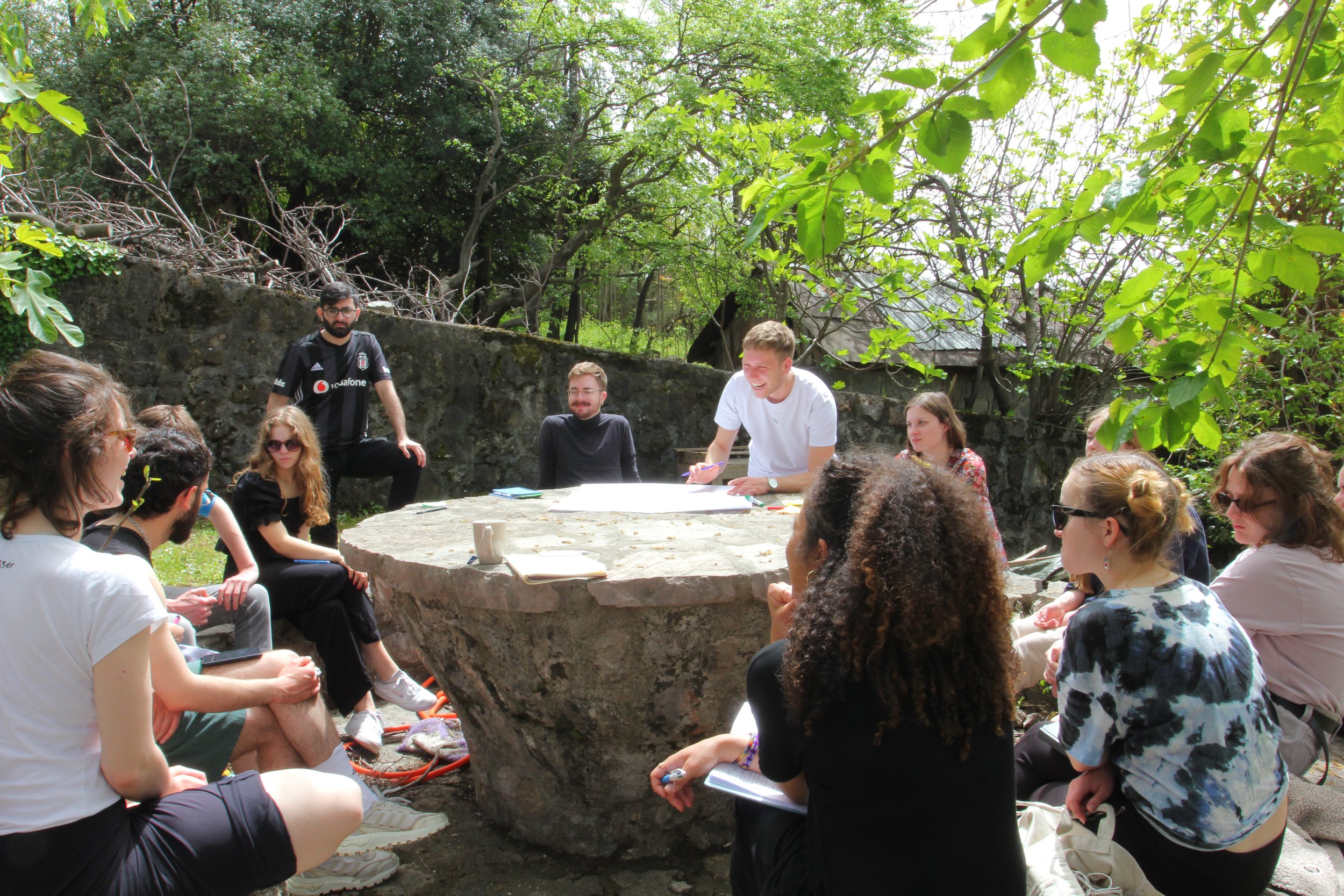THE POLITICS OF MENTAL HEALTH
The WHO constitution states that “health is a state of complete physical, mental and social well-being and not merely the absence of disease or infirmity”, but according to a 2017 UN report nowhere in the world does mental health enjoy parity with physical health in budgeting, education or practice.
The poor access to health, decent work, housing, education and a healthy environment of young people was subject of FYEG’s AWPs on social rights in 2019 and on just transition in 2020. The pandemic exacerbated this reality.
Young people also struggle to take part in democratic processes, not only because their participation has moved online but due to limitations on their freedom of association. Meanwhile, in activist spaces the topic of mental health is being centered, with terms such as burnout, compassion fatigue, anxiety, climate grief, and self-care becoming of daily interest among groups that wish to invest in the long-term resiliency of their memberships.
The project plan will unfold in three international activities to understand the causes and consequences of worsening mental health among young people and ensure the youth’s role in building and sharing the solutions needed to address it.
Phase I. Seminar: Mental Health is Political
This seminar was a five-day event that took place in Podgorica (Montenegro) on 20-24 April 2022. Its aim was to identify the systemic causes and advocate for the political solutions needed to prevent and address the intersectional impacts on mental health among youth.
During the seminar we:
understood how broad the topic of mental health is, and collectively decided to focus more on the systemic level rather than on the individual one;
framed mental health in the context of intersectionality;
created our very own narrative on mental health, the one we are sharing with you today;
thought about action points to address the mental health crisis; and finally
worked on communication skills, which were all very useful in the following parts of the project.
Phase II. Summer camp: This Oppressive System and Our Mental Health
This 6-day summer camp took place in France on 23-28 July 2022 in Rouen (France) and gathered young activists to discuss how mental health problems peculiarly affect people who are oppressed.
During the summer camp we:
learned about our rights as activists, specifically the right of expression, freedom of assembly, and access to information;
learned about how human and social rights are violated, in turn affecting our mental health, and took a closer look at two specific groups: activists, and oppressed people;
came up with solutions on the local, national, and European/international level and designed specific actions for all levels;
shared among each other best practices and resources so that we could disseminate this new knowledge.
Phase III. FYEG LAB: All Politics Is Mental Health Politics
This 3-day LAB organised in Brussels on 11-13 November 2022 closed one year of work on the politics of mental health. We gathered around 80 people, including representatives of NGOs, party political youth organisations and movements, to discover our outputs and solutions, and join forces in lobbying for better mental health.
We created a platform to address decision-makers our vision of mental health, an international network of mental health supporters to work together in the future.
Output: Mental Health Campaign
FYEG ran a one-month campaign on Mental Health in October and November 2022 to showcase how mental health is political and the way services, housing or work function in our societies and affect our mental health.
It kicked off on World Mental Health Day on 10th October 2022 with this video and culminated with the launch of the Mental Health Is Political video featuring Finnish MEP Alviina Alametsä and Swedish MEP Alice Bah Kunke.
The campaign was multilingual, meaning outputs were translated into Azerbaijani, Spanish, Greek, Catalan, Estonian, Finnish, French and German. Moreover, one of our posts regarding refugees was partially translated to Arabic and Ukrainian.
The campaign was successful and managed to reach around 50.000 people all over Europe!
Check it out!
Output: Resolution to the EGP Congress
FYEG Executive Committee together with the support of the Mental Health Working Group, drafted a resolution on inclusive mental healthcare targeted at marginalised communities. The resolution called “Mental health is political: Addressing Europe’s mental health crisis holistically” was submitted to the European Green Congress 2022 in Copenhagen. The resolution was voted unanimously by the Congress.
You can find the adopted resolution here.
Output: Joint Statement for a holistic approach to Europe’s mental health
At the end of the project, we invited organisations to sign our joint statement to demand that, to do justice to this mental health crisis, the EU and national governments:
Recognise that marginalised peoples are most at risk and most prejudiced from oppressive systems.
Factor in mental health when any resolution, report, or motion is drafted or debated.
Continue spreading awareness about mental health and illness and work to reduce stigma, particularly for and among underrepresented groups.
Read our joint statement here !
Output: Podcast "How oppressive systems hurt our minds"
With the help of The Burning Case podcast we produced the podcast episode Mental Health is political: How oppressive systems hurt our minds. In this episode, a member of our Executive Committee and the host of the podcast discuss together the intersectionality of mental health, how covid influenced our mental health, how our society sees mental health, and much more!
Go grab your headphones and listen to our episode here!
Output: Mental health toolkit
The final product, fruit from this one ye-long work plan, is our Mental Health Toolkit.
Developed by our Mental Health Work Group, this toolkit combines what we learned across the different phases, explains how society is affecting our mental health, how the policies oppress our mental health (and how to change that!) and other useful informations! To wrap it up: it's the perfect first step to start understanding the politics of mental health!
Read the full Mental Health toolkit here.












